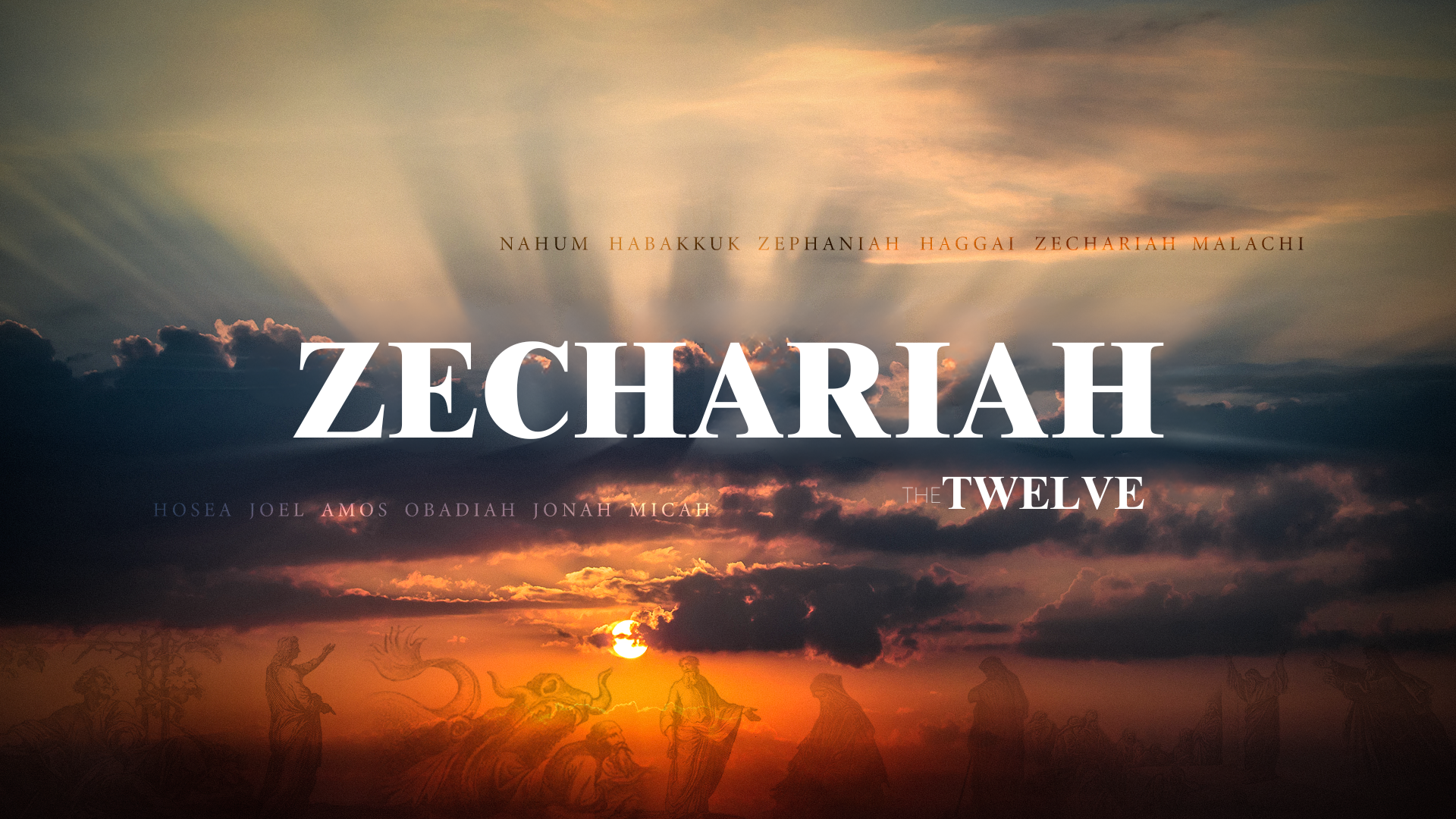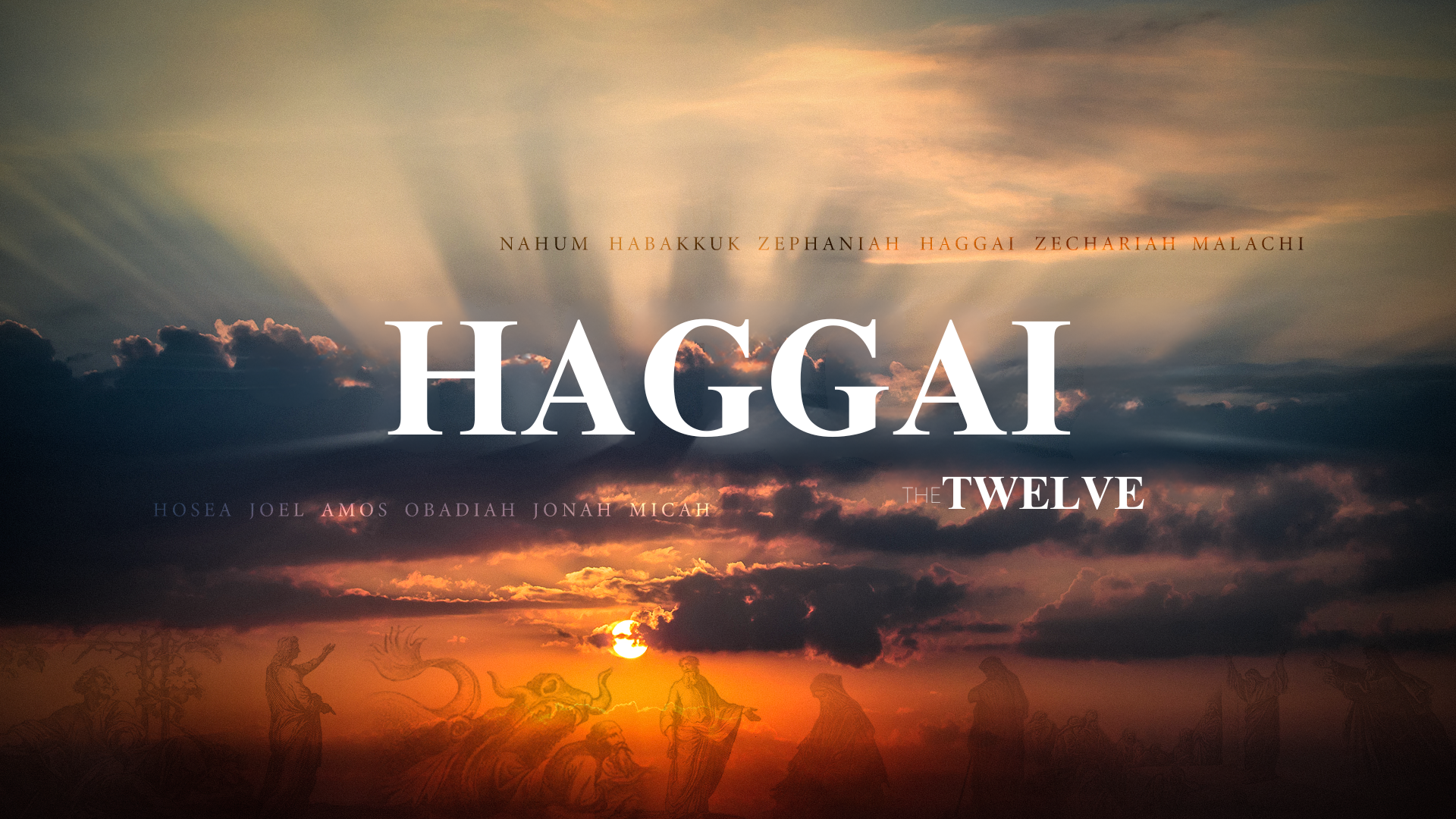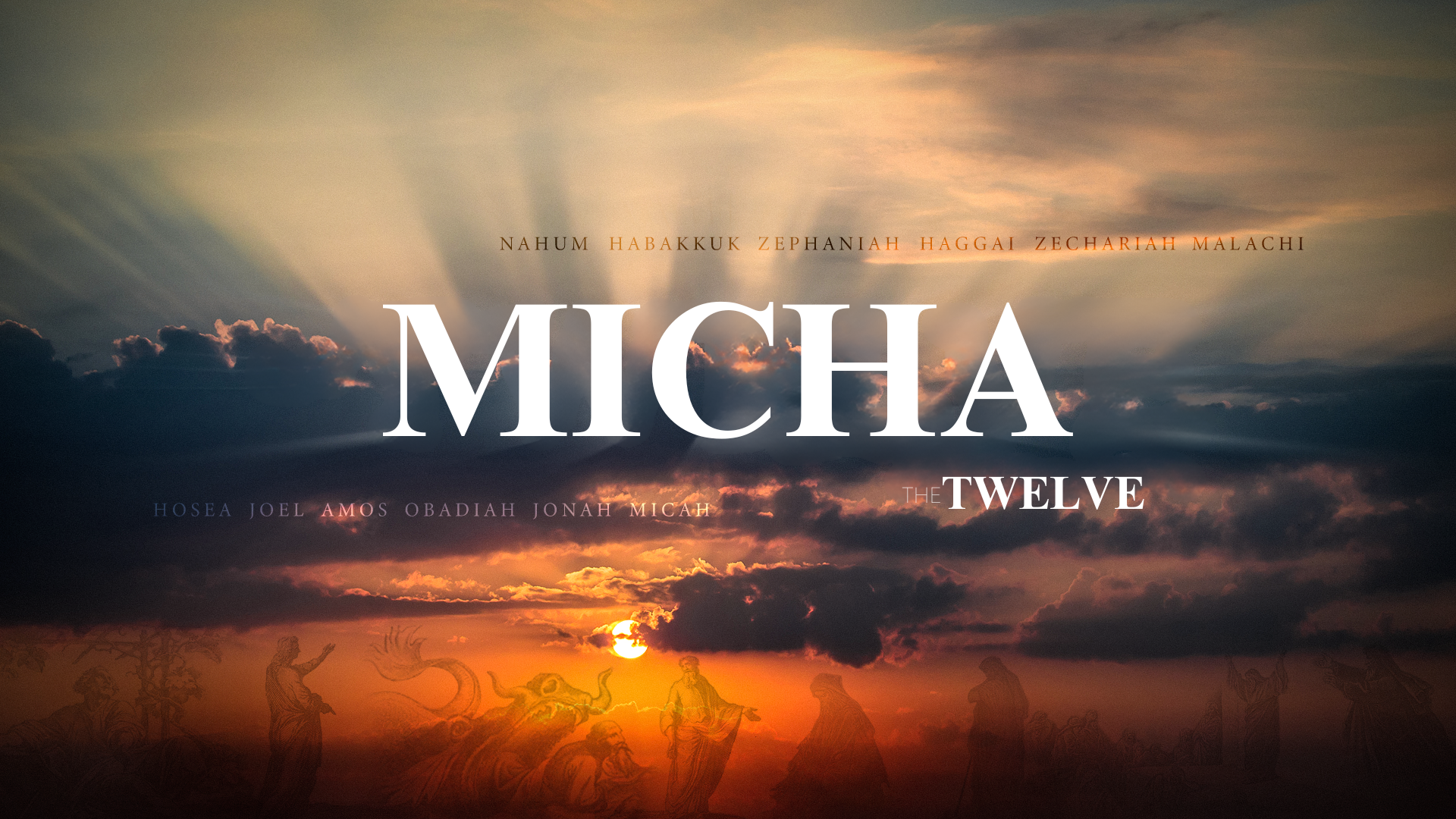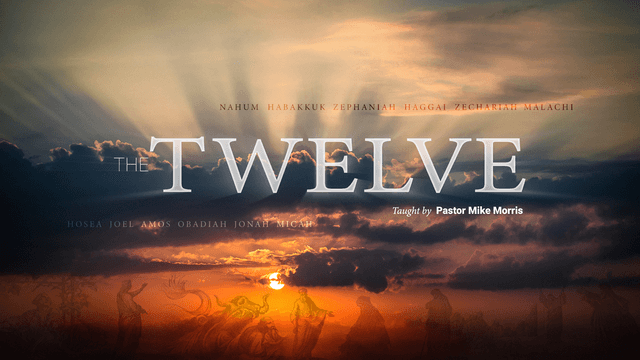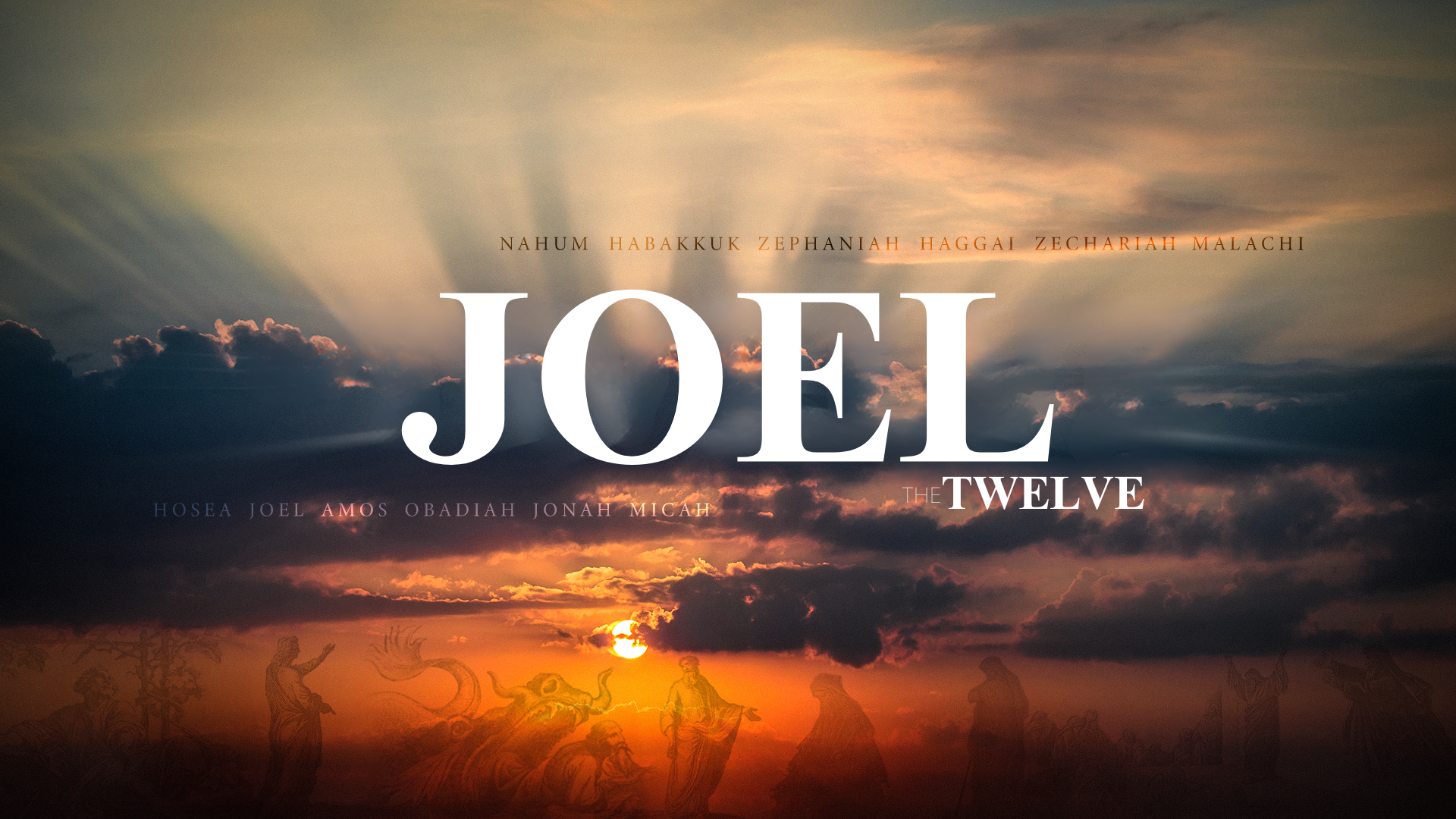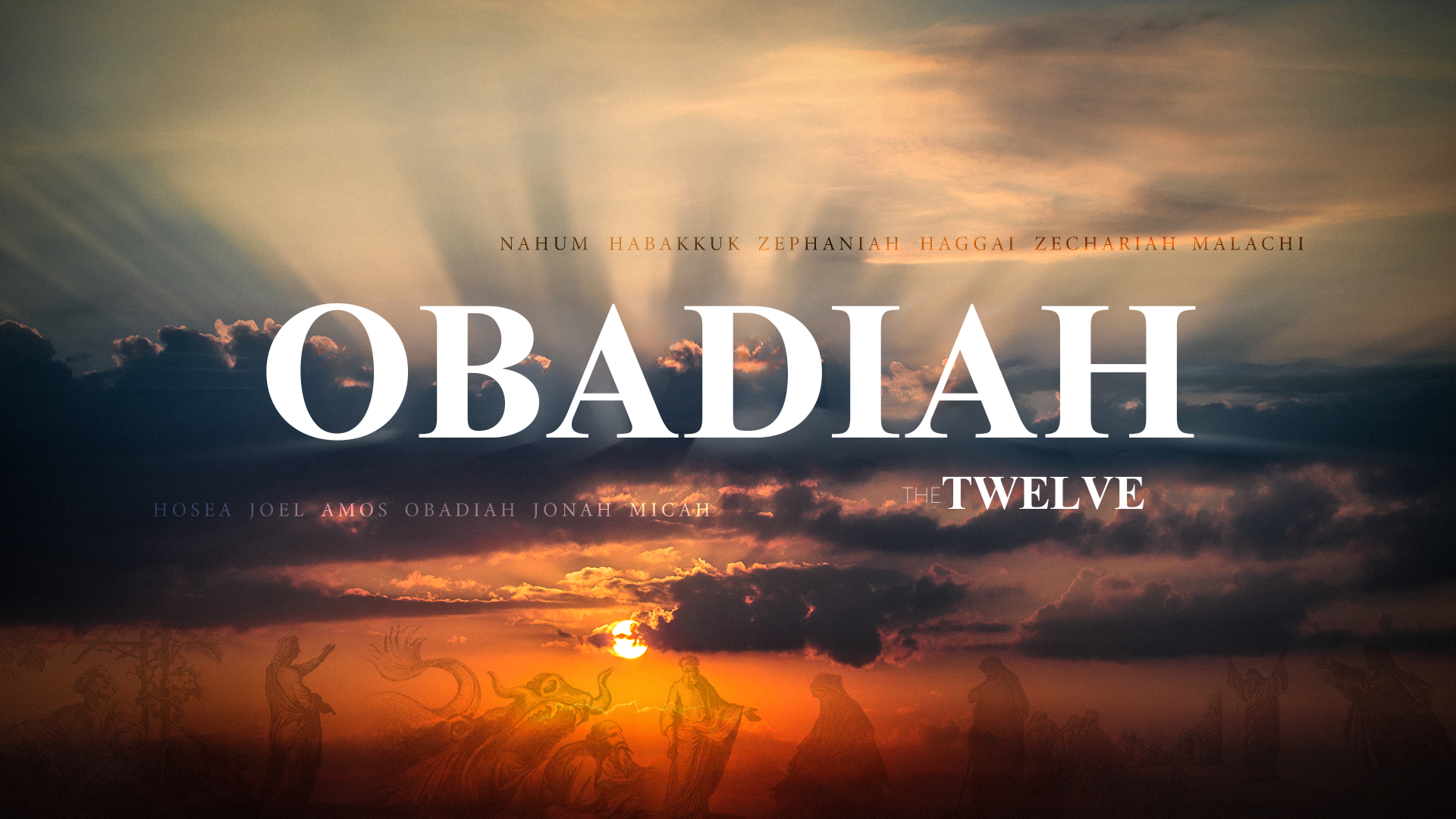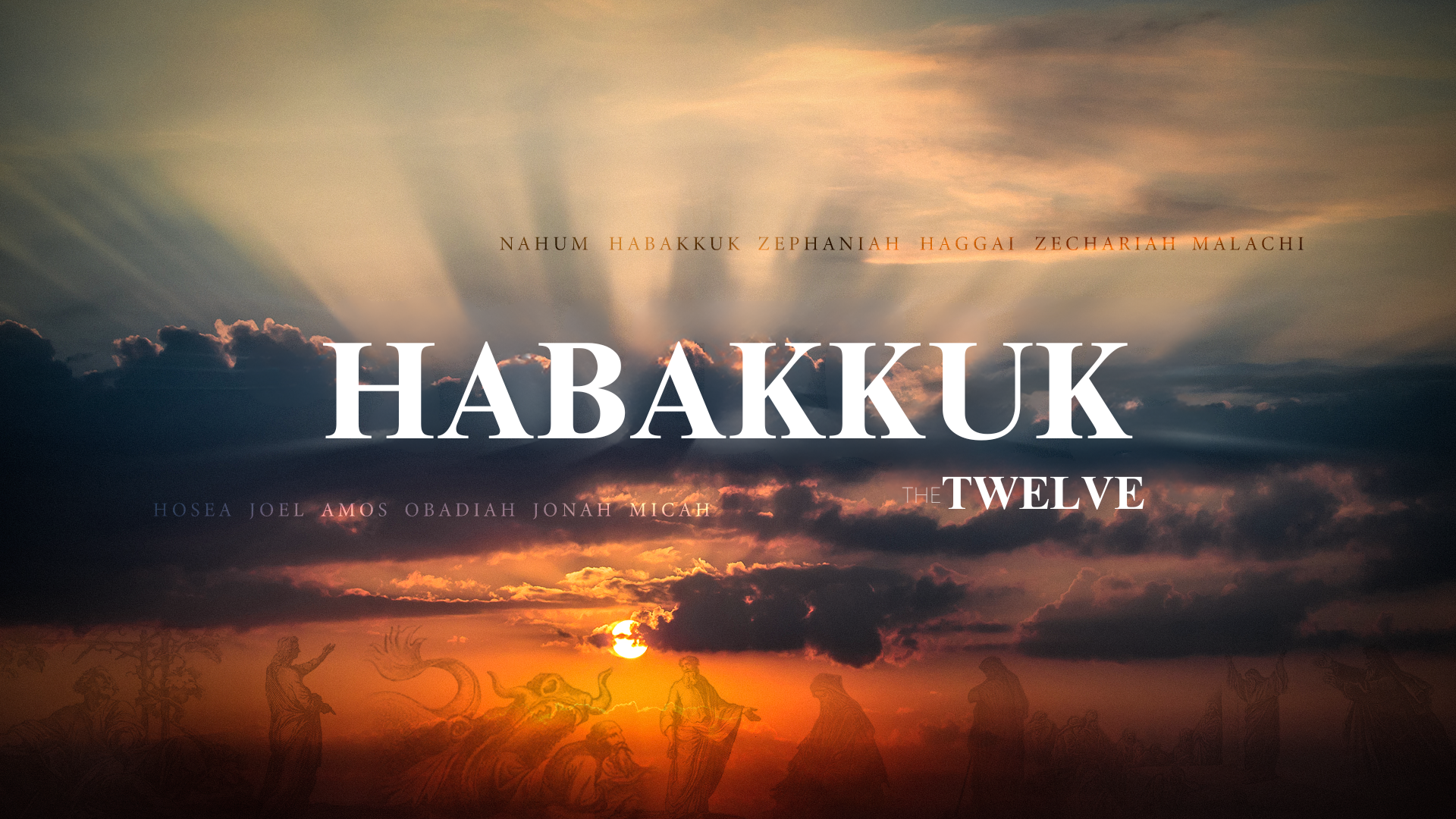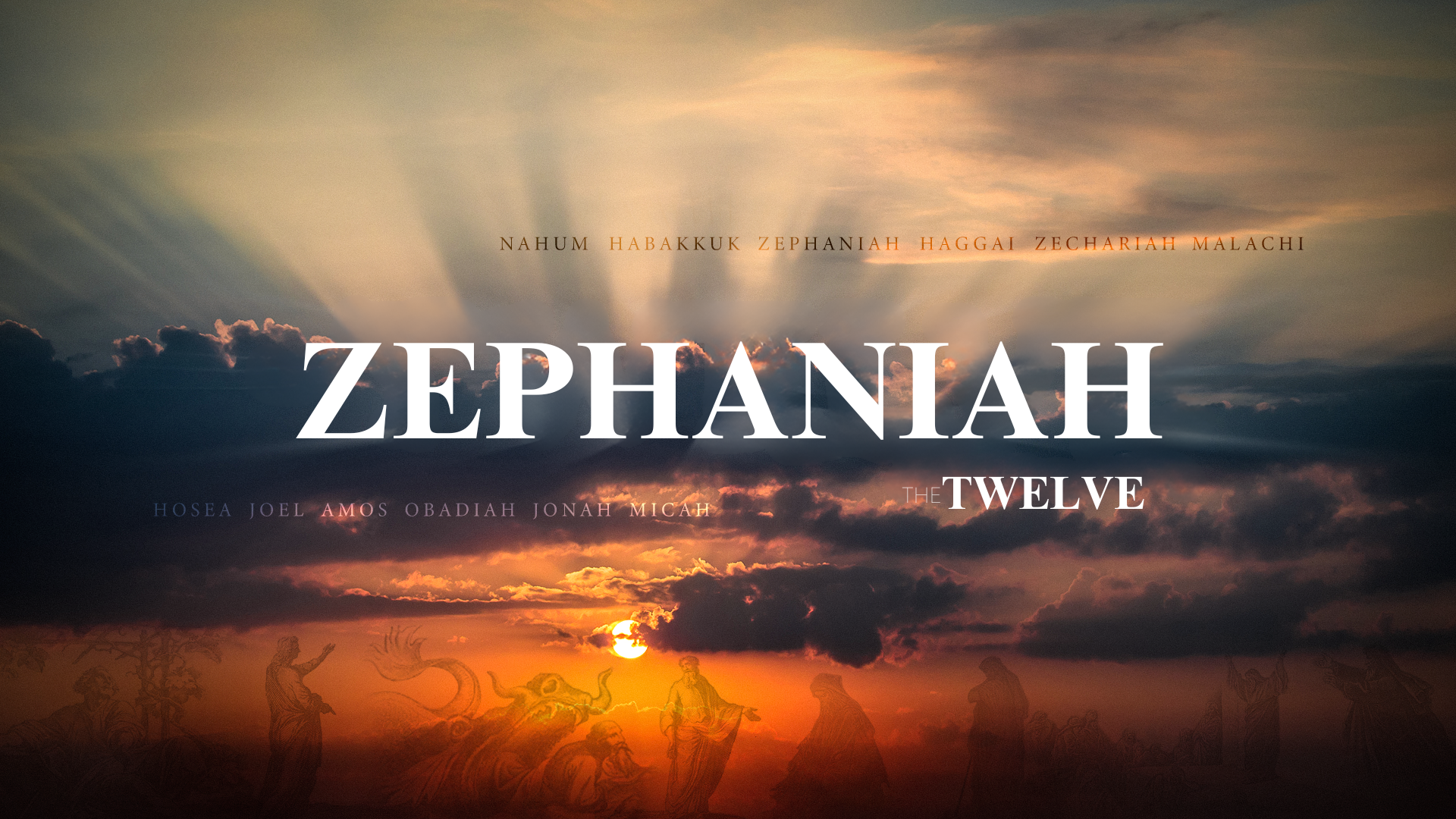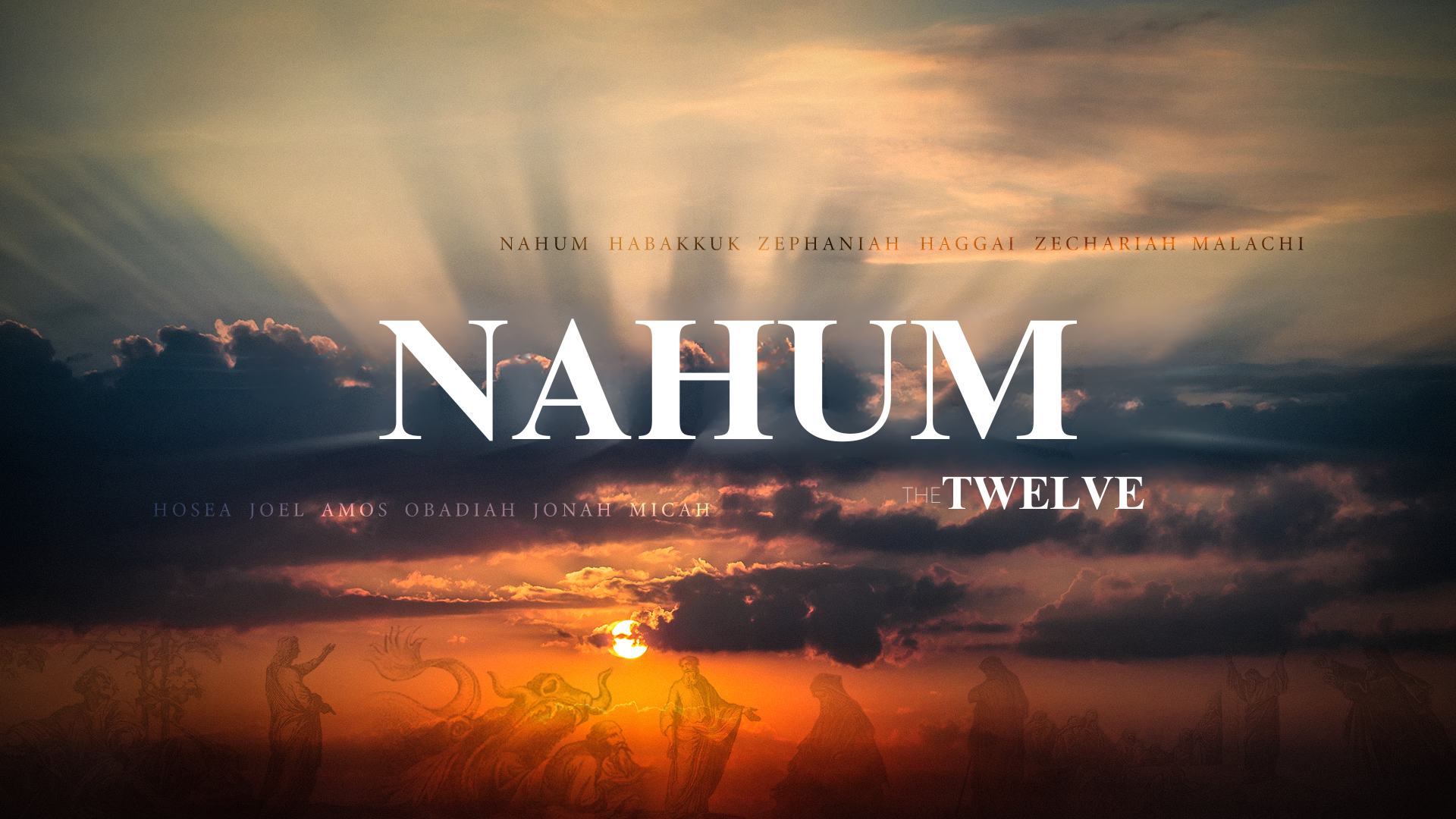MANUSCRIPT
Welcome back to our study of the Twelve, the ancient Hebrew name for the Old Testament books that we call the minor prophets. the last twelve books in your Old Testament.
Today we begin our study of the brief book of the prophet Joel. at 73 verses, it’s fairly short, but it’s had a significant impact on our understanding of the OT and is quoted in Acts 2 at a critical point in the life of the church. the vivid imagery and important prophetic content set this book apart. and as we always do here at VBVF, we begin studies with an overview of the biblical book. this is our ninth book in this series. so let’s set the prophet Joel in the context of The Twelve.
Let’s look at the timelines of the two Israelite nations in the time of the divided monarchy, Israel in the north and Judah in the south.
The voices of the prophets ceased in the north as the Assyrians crushed Israel, taking them into captivity in 722 BC, an exile from which they never returned.
Judah endured another 135 years before falling to the Babylonians, the nation that conquered the Assyrians. our studies of Jonah through Obadiah are available on our website, vbvf.org, under the “Old Testament” tile. look for the series entitled “The Twelve”
In addition to the chronological setting, we need to also look at some other important features of the book.
Author: the author of the book is Joel, which means “The Lord is God” " The superscription, 1.1, tells us everything that we know about him, which isn’t much. only that he is the author, his name is Joel, and he is the son of Pethuel, a name not otherwise found in scripture. from what Joel wrote, we can conclude that he was a resident of Jerusalem, and very likely somehow involved in temple worship
Date/Historical Setting: There is a vigorous debate about the dating of the book. OT scholars place the dates ranging from the ninth century BC to the time of the Maccabees in the intertestamental period, about 200 BC, but those are not well-supported dates. I’ve placed it in the most generally accepted position: very close to the Babylonian exile, probably just before or perhaps just after, sometime from about 600 BC to 500 BC, a date range that most closely fits the internal and external evidence. and truly, the date is insignificant compared to the matchless value of the words of the prophet Joel.
Content: among the prophets, Joel is unusual. his mention of the locust plague is unique, as is his important teaching on the coming of the Holy Spirit, quoted by Peter in Acts. but as unusual as these features are, they are matched by what Joel does not say. Joel never mentions any foreign threats such as Assyria or Babylon, though the Babylonian exile is chronologically near. there is no evident military threat mentioned in the book. Joel never mentions a king, though he does focus on the temple worship. there is no attribution of specific sins to the leaders or people the way we find in other prophets. the only people mentioned are by type and can be summarized as citizens and religious officials. the centerpiece of the narrative is a call to repentance in the aftermath of a devastating locust plague, described twice in slightly different ways in chapters 1 & 2.
Structure: The book is presented in two sections. the first passage, 1.2 through 2.11, has three subsections followed by a pivot passage in 2.12-17. in the second passage of the book, 2.18 through 3.21, the tone of the prophecy dramatically changes. the first half of the book marks a descent into great despair and is characterized by the near-total destruction of the agricultural basis of the Judean economy and community due to locusts and a severe drought. this devastation resulted in a serious call for immediate repentance on the part of the leaders and people of Judah. the second half is markedly different, but I’ll save that for when we study that portion of the book. let’s look more closely at the passages we’ll cover today.
Verses 1.2 through 1.14: Joel describes in literal terms the effects of a devastating locust plague that ravages Judah and perhaps the entire ancient Near East, ending with a brief call to repentance.
Verses 1.15 through 1.20: Joel compares the destruction of the locust plague to the coming Day of the Lord, a Day spoken of in several prophetic books, and he introduces the added calamity of a drought, finishing the destruction begun by the locusts.
Verses 2.1 through 2.11: the locust plague is now described in terms more fitting for a human army, but we learn in verses 10 and 11 that this isn’t some random natural disaster, as the plague is the Lord’s army and they are doing His bidding. and the consequences are beyond human endurance.
Verses 2.12 through 2.17: the passage Haley read today is the pinnacle of the first movement of the book, the descent into tragedy and despair. it is the culminating point of the devastating judgment of the locusts and the drought and is the basis for the return of the people to the worship of the covenant Lord. this passage stands as one of the most compelling calls to repentance in the Bible. it is a word for all time for God’s people who must, again and again, return to their God.
Themes: What’s this book about? There are several secondary themes in the book – the value and role of corporate worship, divine compassion and mercy, and God’s unquestionable sovereignty over nature. but Joel’s prophetic call has a central focus. the picture we find in this book is one of great judgment and suffering, but also one of great hope. Joel looks at the experience of adversity God has brought to the nation, and in that adversity Joel recognizes the desperate need for repentance, calling the people to mourn for their waywardness through fasts, solemn assemblies, and other public and corporate means. but following that call to repent is a promise of reconciliation with their God. Joel’s word is not a general, works-based appeal for the people to “be better and do better” – instead, it is the heartfelt call of the Lord, reaching out to His people to return to Him. with the authority of a prophet, Joel calls for everyone in the nation, from the highest to the lowest, from the elders to the nursing infants, to return to their covenant God.
So the question for us is this: when we experience difficulty and suffering in this life, will we be sensitive to the Lord, listen for His voice, seek His face, and seek an understanding from Him about the nature of what we’re facing? it might be God using life’s typical hardships to shape our character further toward the image of Christ. but there might be times when we experience what I’ll call “purposeful adversity,” when God allows us to reap what we have sown when our sin has brought suffering home to us, and God uses pain to teach us to return to Him. the question is, when we experience suffering, how will we respond? Will we be courageous and ask ourselves the tough questions? will we ask God if there is sin in our lives which we need to confess and forsake, which we must put to death? Will we respond to our loving Father’s offer of reconciliation with Him by laying aside our sins and running to Him?
Let’s jump into the text.
Passage One: Locusts
1 The word of the Lord that came to Joel, the son of Pethuel:
2 Hear this, you elders;
give ear, all inhabitants of the land!
Has such a thing happened in your days,
or in the days of your fathers?
3 Tell your children of it,
and let your children tell their children,
and their children to another generation.
4 What the cutting locust left,
the swarming locust has eaten.
What the swarming locust left,
the hopping locust has eaten,
and what the hopping locust left,
the destroying locust has eaten.
5 Awake, you drunkards, and weep,
and wail, all you drinkers of wine,
because of the sweet wine,
for it is cut off from your mouth.
6 For a nation has come up against my land,
powerful and beyond number;
its teeth are lions' teeth,
and it has the fangs of a lioness.
7 It has laid waste my vine
and splintered my fig tree;
it has stripped off their bark and thrown it down;
their branches are made white.
8 Lament like a virgin wearing sackcloth
for the bridegroom of her youth.
9 The grain offering and the drink offering are cut off
from the house of the Lord.
The priests mourn,
the ministers of the Lord.
10 The fields are destroyed,
the ground mourns,
because the grain is destroyed,
the wine dries up,
the oil languishes.
11 Be ashamed, O tillers of the soil;
wail, O vinedressers,
for the wheat and the barley,
because the harvest of the field has perished.
12 The vine dries up;
the fig tree languishes.
Pomegranate, palm, and apple,
all the trees of the field are dried up,
and gladness dries up
from the children of man.
13 Put on sackcloth and lament, O priests;
wail, O ministers of the altar.
Go in, pass the night in sackcloth,
O ministers of my God!
Because grain offering and drink offering
are withheld from the house of your God.
14 Consecrate a fast;
call a solemn assembly.
Gather the elders
and all the inhabitants of the land
to the house of the Lord your God,
and cry out to the Lord.
Joel begins with a call to the elders and all those in the land to pay attention, to acknowledge that what was happening in their days was not just a plague, but an event filled with divine significance, and worthy of telling and retelling to future generations.
Joel then begins a literal description of the effects of one of the most terrifying events possible in the ancient world: a locust plague. in our modern world, we don’t comprehend the fearsome destruction of a plague of locusts. here’s a picture of one. the largest known locust plague in history was right here in the central US, in the year 1874. an estimated 12 trillion Rocky Mountain locusts swept eastward and covered the Great Plains, from Colorado to just west of the Mississippi River, from Austin, Texas to Saskatchewan, Canada it was reported that the sun would be blotted out of the sky for up to six hours at a time; everything was eaten, including leather and wood, and people were forced to eat the locusts themselves to survive, as nothing else existed. a locust plague was every bit as devastating as the biblical accounts describe.
Here, like the plague of the Exodus, all plants are destroyed and the sun is darkened. this was a disaster the Hebrews knew well. they had nine words for “locust,” so that tells you they knew something about locusts. the people lament as the locusts consume everything, and Joel especially mourns that the grain and drink offerings must cease, as there is nothing left to offer in the temple worship. what follows is Joel’s first call to the priests and ministers of the Lord to enter into God’s house and lament, fast, and cry out to the Lord.
Passage Two: Drought
Now Joel turns to another disaster right on the heels of the locust plague. a devastating drought. and he begins to compare the calamities striking Judah with the day of the Lord.
15 Alas for the day!
For the day of the Lord is near,
and as destruction from the Almighty it comes.
16 Is not the food cut off
before our eyes,
joy and gladness
from the house of our God?
17 The seed shrivels under the clods;
the storehouses are desolate;
the granaries are torn down
because the grain has dried up.
18 How the beasts groan!
The herds of cattle are perplexed
because there is no pasture for them;
even the flocks of sheep suffer.
19 To you, O Lord, I call.
For fire has devoured
the pastures of the wilderness,
and flame has burned
all the trees of the field.
20 Even the beasts of the field pant for you
because the water brooks are dried up,
and fire has devoured
the pastures of the wilderness.
This description sounds exactly like what you would expect to experience after a locust plague. agriculture, the base of Judah’s economy and life, has been destroyed. crops have been ravaged by the locusts and even the water sources are dried up. the animals are suffering greatly because, as the text says twice, “fire has devoured the pastures of the wilderness”. and as before, Joel makes a point of describing the effect of the devastation on the rituals of the temple worship. through this judgment, joy and happiness have been lost across all of Judah. but don’t miss an important point in verse 19 – Joel says, “To You, O Lord, I call” – he has called on the leaders and the people to turn to God, and now Joel himself turns to the Lord, no doubt calling out for mercy from the devastation.
Passage 3: Metaphor of Locusts
Now the tone changes a bit as Joel prophetically sees the locusts in a different way.
1 Blow a trumpet in Zion;
sound an alarm on my holy mountain!
Let all the inhabitants of the land tremble,
for the day of the Lord is coming; it is near,
2 a day of darkness and gloom,
a day of clouds and thick darkness!
Like blackness there is spread upon the mountains
a great and powerful people;
their like has never been before,
nor will be again after them
through the years of all generations.
3 Fire devours before them,
and behind them a flame burns.
The land is like the garden of Eden before them,
but behind them a desolate wilderness,
and nothing escapes them.
4 Their appearance is like the appearance of horses,
and like war horses they run.
5 As with the rumbling of chariots,
they leap on the tops of the mountains,
like the crackling of a flame of fire
devouring the stubble,
like a powerful army
drawn up for battle.
6 Before them peoples are in anguish;
all faces grow pale.
7 Like warriors they charge;
like soldiers they scale the wall.
They march each on his way;
they do not swerve from their paths.
8 They do not jostle one another;
each marches in his path;
they burst through the weapons
and are not halted.
9 They leap upon the city,
they run upon the walls,
they climb up into the houses,
they enter through the windows like a thief.
10 The earth quakes before them;
the heavens tremble.
The sun and the moon are darkened,
and the stars withdraw their shining.
11 The Lord utters his voice
before his army,
for his camp is exceedingly great;
he who executes his word is powerful.
For the day of the Lord is great and very awesome;
who can endure it?
Joel repeats the truth that the day of the Lord is near, a day of darkness and gloom, just what you would expect in the midst of a locust swarm, but now he describes again the locust plague in terms that sound militaristic as if the locusts were an invading army. his language changes from describing the devastation to describing the locusts themselves. before, they stripped trees bare and laid waste to the grapevines. now, Joel is calling for a trumpet of alarm to be blown as he warns of a judgment that can turn the Garden of Eden into a desolate wasteland.
The Lord and His army are advancing on the people and land of Judah for judgment. The Day of the Lord is near, even at the gates. Joel describes the locusts as war horses and chariots, a powerful army drawn up for battle, and again there will be signs in the heavens. at this point in the book, Joel has finished the descent into devastation, destruction, and despair. but there is still a word from the Lord.
Passage Four: Return to Me
Now we come to the pivot passage in the book.
12 “Yet even now,” declares the Lord,
“return to me with all your heart,
with fasting, with weeping, and with mourning;
13 and rend your hearts and not your garments.”
Return to the Lord your God,
for he is gracious and merciful,
slow to anger, and abounding in steadfast love;
and he relents over disaster.
14 Who knows whether he will not turn and relent,
and leave a blessing behind him,
a grain offering and a drink offering
for the Lord your God?
15 Blow the trumpet in Zion;
consecrate a fast;
call a solemn assembly;
16 gather the people.
Consecrate the congregation;
assemble the elders;
gather the children,
even nursing infants.
Let the bridegroom leave his room,
and the bride her chamber.
17 Between the vestibule and the altar
let the priests, the ministers of the Lord, weep
and say, “Spare your people, O Lord,
and make not your heritage a reproach,
a byword among the nations.
Why should they say among the peoples,
‘Where is their God?’”
Now the speaker changes. in verses 12 and 13, God Himself speaks to the people as a husband would to a deeply loved but wayward wife, as a parent would to a cherished but wayward child. ”Return to Me. let your heart be broken with your sin. mourn for your willful wanderings which have taken you far from Me. Don’t rely on rending your garments in ritual repentance, but instead rend your hearts in mourning. repent of your wickedness and come back to Me. ” and that return is based on the very character of God. He is gracious and merciful, slow to anger, and abounding in steadfast love; and he relents over disaster.
Joel calls the nation to gather, to repent, to return in worship to the Lord. That call was true for Judah. it’s true for us, for you, and for me. there is yet time, while it is still called “today,” to turn from our sin and return to our God, to come back home to Him. and here’s the question we must confront. how do we return in repentance before the Lord? what must we do? Write this as point number 1 in your bulletin.
Reject our pride and recognize our sin: we must turn from ourselves and our self-centered pride and see our sin for what it is – the works of the flesh, according to Galatians 5.19-21 .
19 Now the works of the flesh are evident: sexual immorality, impurity, sensuality, 20 idolatry, sorcery, enmity, strife, jealousy, fits of anger, rivalries, dissensions, divisions, 21 envy, drunkenness, orgies, and things like these.
we must agree with God that what He calls sin is sin. no more excuses or rationalizations.
Point number 2 is this: Reach the point of restoration, where we love the Lord more than our rebellion: by God’s grace, in our repentance, we turn FROM our sin and TO a fresh and new joy and urgency in our walk with Christ. we set aside our rebellious spirits as surely as the prodigal set aside the pig pen in which he found himself when he said, I will arise and go to my father, (Luke 15.18). it’s at this point that a person begins the hard work of Romans 8.13
13 For if you live according to the flesh you will die, but if by the Spirit you put to death the deeds of the body, you will live.
Point number 3 is the final one . Return and reconcile with our God. those who are willing to confess their own sin and sinful hearts before the Lord will be received by Him.
I John 1.8-10 tells us 8 If we say we have no sin, we deceive ourselves, and the truth is not in us. 9 If we confess our sins, he is faithful and just to forgive us our sins and to cleanse us from all unrighteousness. 10 If we say we have not sinned, we make him a liar, and his word is not in us.
Whether we are coming to Christ for the first time or returning to Him as a backslidden believer, we are a new creation.
II Cor 5.17, 20b 17 Therefore, if anyone is in Christ, he is a new creation. The old has passed away; behold, the new has come. . We implore you on behalf of Christ, be reconciled to God.
So let’s return to the question we started with: when we experience suffering, how will we respond?
Will we repent with our whole hearts and return to the Lord our God?
Or will we push back against Him, continue to rebel against Him and His word, and reject His call to turn from our sin and be restored?
To choose to sin is to choose to suffer. God has provided a way of escape from temptation, a way to return to full fellowship with Him through repentance and reconciliation, a way to reignite the flame of our love for Him, to return to Jesus, our first – and best – love. that way is there if we will humbly accept it and receive it.

Taught by Mike Morris
Associate Pastor of Verse By Verse Fellowship
The Twelve Series
